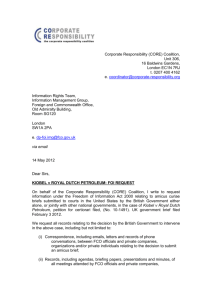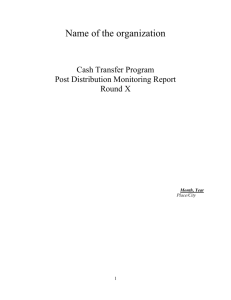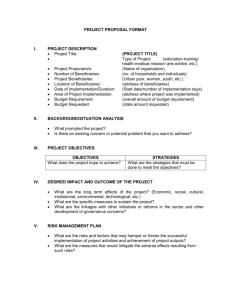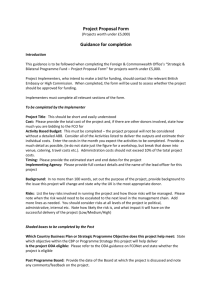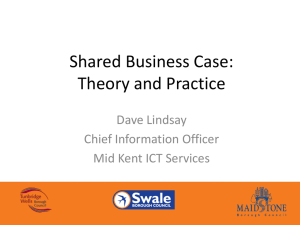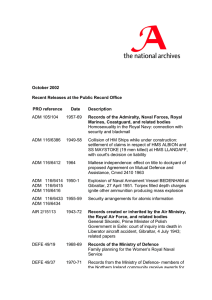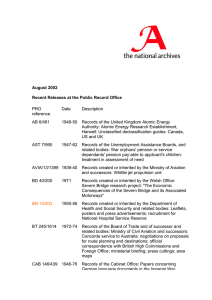Implementing Energy Efficiency in Brazil
advertisement
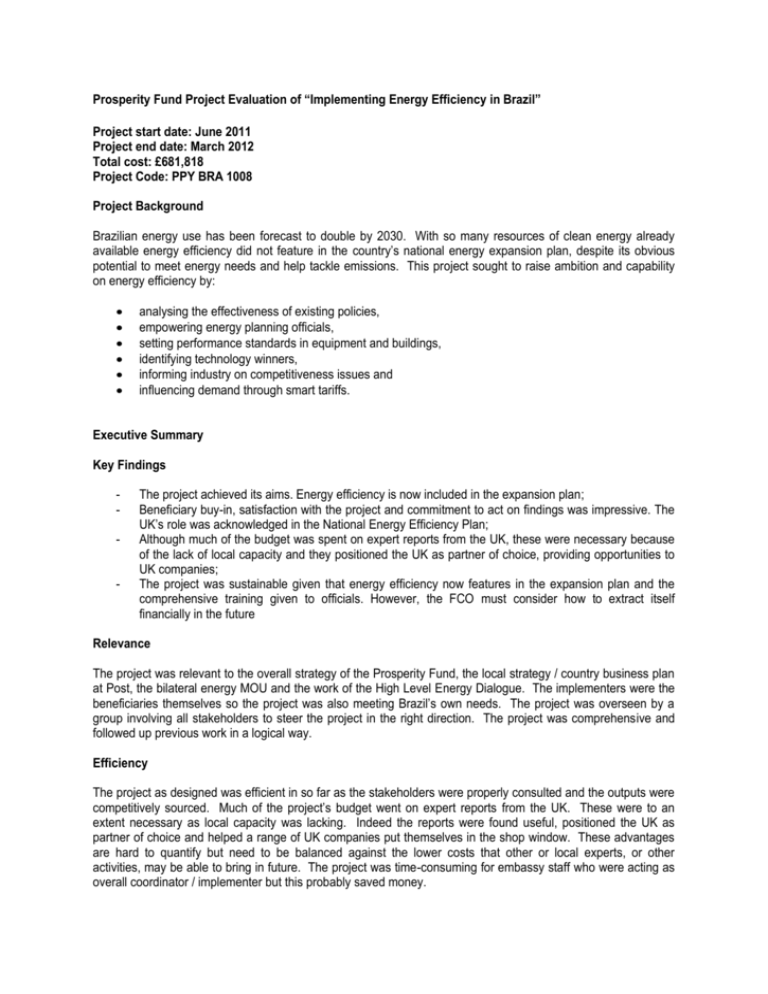
Prosperity Fund Project Evaluation of “Implementing Energy Efficiency in Brazil” Project start date: June 2011 Project end date: March 2012 Total cost: £681,818 Project Code: PPY BRA 1008 Project Background Brazilian energy use has been forecast to double by 2030. With so many resources of clean energy already available energy efficiency did not feature in the country’s national energy expansion plan, despite its obvious potential to meet energy needs and help tackle emissions. This project sought to raise ambition and capability on energy efficiency by: analysing the effectiveness of existing policies, empowering energy planning officials, setting performance standards in equipment and buildings, identifying technology winners, informing industry on competitiveness issues and influencing demand through smart tariffs. Executive Summary Key Findings - The project achieved its aims. Energy efficiency is now included in the expansion plan; Beneficiary buy-in, satisfaction with the project and commitment to act on findings was impressive. The UK’s role was acknowledged in the National Energy Efficiency Plan; Although much of the budget was spent on expert reports from the UK, these were necessary because of the lack of local capacity and they positioned the UK as partner of choice, providing opportunities to UK companies; The project was sustainable given that energy efficiency now features in the expansion plan and the comprehensive training given to officials. However, the FCO must consider how to extract itself financially in the future Relevance The project was relevant to the overall strategy of the Prosperity Fund, the local strategy / country business plan at Post, the bilateral energy MOU and the work of the High Level Energy Dialogue. The implementers were the beneficiaries themselves so the project was also meeting Brazil’s own needs. The project was overseen by a group involving all stakeholders to steer the project in the right direction. The project was comprehensive and followed up previous work in a logical way. Efficiency The project as designed was efficient in so far as the stakeholders were properly consulted and the outputs were competitively sourced. Much of the project’s budget went on expert reports from the UK. These were to an extent necessary as local capacity was lacking. Indeed the reports were found useful, positioned the UK as partner of choice and helped a range of UK companies put themselves in the shop window. These advantages are hard to quantify but need to be balanced against the lower costs that other or local experts, or other activities, may be able to bring in future. The project was time-consuming for embassy staff who were acting as overall coordinator / implementer but this probably saved money. Effectiveness The project was effective in achieving its indicators of success. Beneficiary buy-in, satisfaction with the project and commitment to act on findings was impressive. The British input was generally well received by the main actors (gaining a mention in the National Energy Efficiency Plan). Sustainability Sustainability is good because the training of officials was comprehensive and energy efficiency now features in the national expansion plan. There was also widespread commitment to act on findings. The National Energy Efficiency Plan is updated every couple of years. There have been new relationships formed across the silos with Post better connected to key stakeholders. But we also need to consider how the FCO can extract itself financially in future. Impact The area of the project which had most impact was the work on demand management where smart tariffs and building certification will be introduced imminently. In addition There is good reason for optimism in the work on technology and industry where it is sensed that the target in the in the official National Energy Efficiency Plan, may be revised to 15% target rather than 10% target by 2030 and remain achievable. Project Management The project was well managed in bringing the key stakeholders together and striving to keep costs down. The seven strands proved an ambitious undertaking to coordinate and cost, and would no doubt have been easier, if more expensive, if an independent implementer had performed that role. There was no strong evidence that the beneficiaries looked beyond their own parochial areas in the coordinating group but it was a good idea to try to reach across the silos nevertheless. In addition, the joint visit to London seemed to forge useful new bonds amongst the Brazilians. Main Lessons Learned 1. Working directly with a wide range of beneficiaries and sharing implementation with Post ensured maximum buy-in to the outputs and objectives. 2. Agreement with other organisations needs to be at the appropriate level 3. The Energy Planning Agency said impact would take a couple of years. This project needs to be monitored, evaluated and reported on over the longer term. Recommendations There is already a Phase II being implemented to follow up. Future questions to address might include: How to buy-in expertise more cheaply eg by using local expertise or scaling down ambition How to embed capacity more long-term eg train the trainer? Secondments? What other sectors can be addressed? What is the FCO’s exit strategy? Federal funding? Linking UK access / expertise with other international or multilateral donors?
